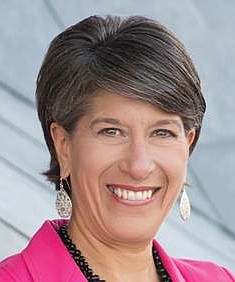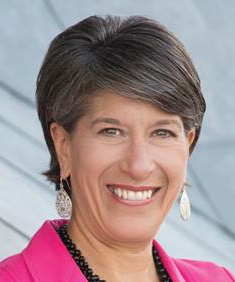In his book, "The Common Rule: Habits of Purpose for an Age of Distraction," Justin Earley shares this quote by Mortimer J. Adler: "Without communication, there can be no community. ... That is why conversation, discussion or talk is the most important form of speaking and listening."
Over the last decade, people would be hard-pressed to deny that we are having fewer and fewer sit-down, face-to-face conversations and that they have been replaced by texting, emojis, messaging on Facebook and emails. All these things have seemingly short-circuited our ability to know each other deeply.
News stories abound about the increase in anxiety and depression in people of all ages; we have seen the suicide rate triple for teens; and surveys indicate we as a culture are lonelier that we have ever been. In light of that, perhaps 2020 should be designated as the year of intentional conversation with others.
"Everything in the universe has its roots in friendship," says Earley. "That means that longing to be in right relationship with other people and things is at the heart of every molecule in existence - and most powerfully in our own hearts."
Earley explains that conversation exposes us in two ways: face-to-face conversation brings risks and truth-telling happens.
Massachusetts Institute of Technology psychologist and author of "Reclaiming Conversation: The Power of Talk in a Digital Age," Sherry Turkle believes that replacing face-to-face communication with technology is depleting people's capacity for empathy toward others. Research has shown that the way people are currently seeking to communicate through devices has threatened true friendship. Instead of things happening in real time right in front of us, people are planning and curating the versions of themselves that they want to bring to the discussion.
Removing tone of voice, facial expression and body language from communication leaves the conversation lacking in so many ways. How can we bring back real, honest conversation? It's not as hard as you might think.
Make an intentional effort to remove devices from the dinner table, whether you are at home or at a restaurant. Create space for regular conversation and fellowship with family and friends. Instead of the well-meaning, "Let's get together soon!" pull up your calendar and set a date to get together to catch up on life.
For the sake of your emotional health, there should be a couple of people you connect with on a regular basis. These would be the people Earley is describing with whom risky conversations take place, truth-telling occurs and perfection is not expected.
When it comes to modeling the art of conversation with your children, create tech-free zones/times in your home where your family can come together for game night or other activities that invite the opportunity for conversations to occur.
STRATEGIES
If you feel like you aren't great at getting conversations going, here are a few questions to get you started:
* What is something that is popular now that totally annoys you and why?
* What is the best/worst thing about your work/school?
* If you had intro music, what song would it be and why?
* Where is the most beautiful place you have ever been?
* If you had to change your name, what would it be and why?
* How should success be measured, and by that measurement, who is the most successful person you know?
* If you could learn the answer to one question about your future, what would the question be?
* What was the best period of your life so far? What do you think will be the best period of your entire life?
People of all ages are actually dying from the lack of community that currently exists in our culture. The good news as we kick off the new year is that the trend does not have to continue. No matter your age, every person can be intentional about having regular meaningful conversations with other people. Imagine how different our culture could be if we all committed to working on this.
Julie Baumgardner is president and CEO of family advocacy nonprofit First Things First. Email her at julieb@firstthings.org.

